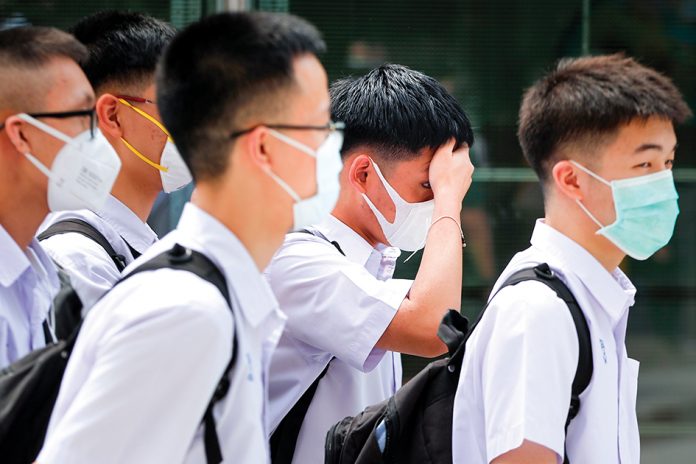
Macau Business | February 2022
Keith Morrison – Author and educationist
Macau should be proud of its protective handling of the Covid-19 pandemic, as it has managed to contain its spread, and many of its citizens have been able to lead a more normal life than in other parts of the world. We should be grateful for this. It comes at a high price; the zero tolerance strategy has damaged businesses and people’s quality of life. Many families have suffered massively from the lockdowns: businesses have closed, never to reopen; workers have been laid off and/or placed on unpaid leave; incomes have plummeted for the already poor. For many, travelling into and out of Macau has been very difficult, even impossible. Quarantine arrangements, placing people in psychologically damaging solitary confinement for weeks, with no access to fresh air or outdoor exercise, and with internet access that takes its own decisions on whether to work or not work, is unacceptable and unsustainable. Those in quarantine need sympathetic support, not punishment.
Macau’s response to the virus has been active and yet quirky. In the name of disease prevention, we had three rounds of testing the entire population, with people queuing in cramped-up conditions, an orgy of opportunity for spreading disease beyond a virus’s wildest hopes and dreams. Unpredicted lockdowns and border restrictions came at the drop of a hat, with some parts of Macau locked down and others not, and some people locked out and others not. Some students went to school whilst others did not. Online teaching was permitted, and, then, for an incomprehensible reason, it was not. Higher education institutions had to shut down everything when they already had online teaching, and so on. QR codes everywhere have become a daily nightmare for QR-weary citizens. Decisions have had to be made ‘on the hoof’, so errors are perhaps forgivable.
Whilst recognizing the gravity of the situation, the disease prevention measures have also had their lighter moments. For example, take the line-up of government officers commenting on virus arrangements, looking extremely serious, with gravitas oozing out of every pore and mask, whilst they manage simultaneously to mention loving Macau, being patriots and delighting in one country, two systems. Or how about the one about cautioning care with parcels from abroad because one parcel just might have passed on the virus? Or the totally brilliant local newspaper headline stating that ‘no hamsters in Macau have tested positive for Covid-19’, which, for ageing fans of Monty Python, is a wonderful reminder of its 1970 ‘News for Parrots’ sketch, in which the reporter exposed irrelevance in announcing that ‘no parrots were involved in an accident on the M-1 [UK motorway] today when a lorry carrying high-octane fuel was in collision with a bollard. … A spokesman for parrots said he was glad no parrots were involved’.
Meanwhile, back in Sensible Land, the Macau government faces a formidable challenge, with no easy solution: a strategy for exiting from its present zero tolerance of the virus, sudden lockdown, and making quarantine as horrible as possible. These cannot continue indefinitely. Zero tolerance will not work, nor is it currently working. International studies indicate that this virus, just like influenza, the common cold, and HIV-Aids, looks as though it is here to stay worldwide, and that, rather than trying to extinguish it completely, it is better to learn how to diagnose its damage, cope with it, treat it and live with it. What plans, facilities and expertise does Macau have for this?
Zero tolerance, however benevolent its intention, is unsustainable. What is the Macau government’s exit strategy to get out of this approach to handling the situation, based on what and whose information and politics, and to whom and how will this apply: businesses, international travellers, the local community, tourists, and so on?
Even though the virus continues to wreak havoc across the world, until we see some strategic exit planning to address how to move beyond zero tolerance, Macau’s exceptional approach is ill equipped to move on, and its susceptibility to wildfire virus spreading increases. Keeping people apart from virus threats may work in the short term, but in the longer term it could fail, as immunity will be weak. We cannot pretend that the virus will not hit Macau; it will. We have to prepare for how to handle it once it arrives. We live with ineradicable danger, not outside it.
























